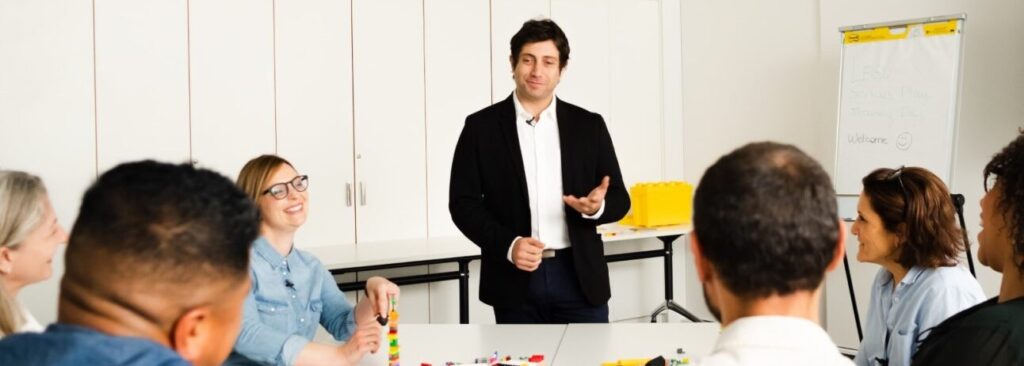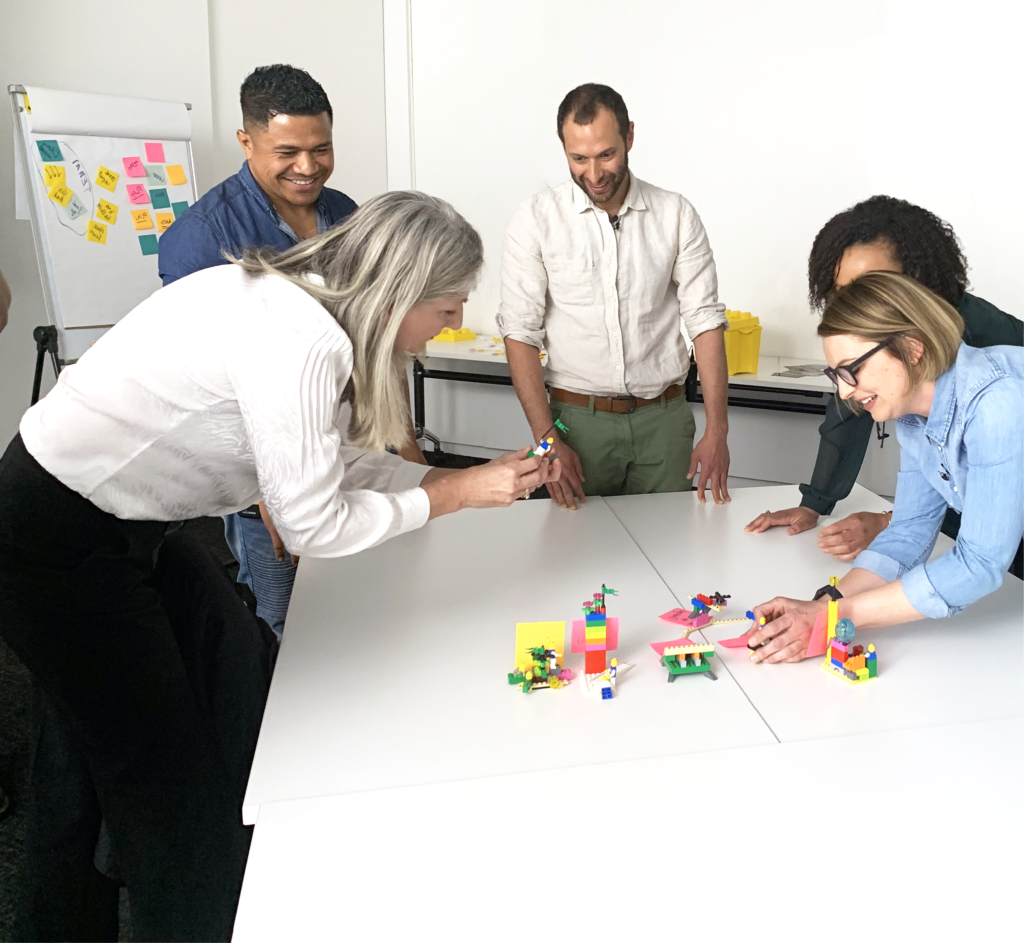In today’s dynamic and fast-paced business landscape, organizations face increasingly complex challenges that demand innovative solutions and adaptive decision-making. Consequently, strategic planning becomes essential for both growth and development. Enter LEGO® SERIOUS PLAY® (LSP), a powerful tool that transforms how teams approach organizational strategy, business model planning, and project management. Through this immersive methodology, organizations gain invaluable insights that encourage creative thinking and collaborative problem-solving.

Theoretical Foundations of Strategic LEGO® SERIOUS PLAY® Methodology
At its core, LEGO® SERIOUS PLAY® is rooted in Constructivist and Constructionist theories, advanced by thought leaders like Jean Piaget and Seymour Papert. These theories focus on how people build knowledge through active, hands-on experiences. By allowing participants to construct 3D brick models, the LSP approach transforms abstract ideas into visual and tangible forms. Consequently, this hands-on methodology fosters critical, systems, and strategic thinking.
Additionally, the LSP approach is influenced by complexity theory, acknowledging that organizations operate in environments that require adaptive, distributed decision-making. Founders Bart Victor and Johan Roos emphasized the importance of using 3D models to establish a common understanding among participants. As a result, LSP encourages collective dialogue and a cohesive understanding of real-world issues faced by teams.
How Strategic LEGO® SERIOUS PLAY® Transforms Organizational Strategy
Unlike traditional meetings, which can stifle creativity, LEGO® SERIOUS PLAY® offers a unique, open approach to strategy development. Instead of maintaining communication barriers, LSP promotes honest exchange and breaks down these barriers. Through metaphorical model building, participants gain a profound, in-depth understanding of organizational challenges. Therefore, this methodology is especially effective for addressing complex issues and fostering effective, innovative solutions.
Key Elements of the Strategic LEGO® SERIOUS PLAY® Process
Strategic Questions: First, facilitators introduce strategic questions that align with the organization’s goals. These questions guide participants to focus on real business challenges, ensuring that the session remains relevant and impactful.
Building Models: Afterward, participants build both individual and collective models, creating a shared landscape that represents business strategies and vision. This phase not only helps teams visualize complex issues but also encourages thinking beyond conventional management methods.
Storytelling: Next, each participant shares their model’s meaning, fostering clear communication and mutual understanding of different perspectives. As a result, team cohesion strengthens, and collaboration becomes more effective.
Collective Reflection: Finally, participants collectively reflect to identify common themes and actionable strategies. This phase enables a collaborative environment where ideas evolve into refined strategies.
Through these elements, LSP provides an ideal framework for management teams and start-ups seeking to navigate today’s complex business challenges.

Benefits of LSP for Organizational Development
The use of LEGO® SERIOUS PLAY® in organizational settings delivers tangible benefits across sectors, improving business growth, communication, and team cohesion.
- Business Growth: By aligning strategies with core values, LSP helps drive business transformation and fosters innovation.
- Enhanced Communication: In breaking down barriers, LSP establishes a shared language for discussing strategic priorities, leading to more productive meetings and workshops.
- Team Cohesion: Additionally, LSP fosters a strong sense of community within teams, encouraging team-building and a shared understanding of the organization’s core values.
- Creativity and Innovation: Thanks to its hands-on nature, LSP stimulates creative problem-solving and empowers teams to think outside the box.
Real-World Applications and Case Studies
Organizations worldwide have embraced LSP to drive various initiatives, including:
- Corporate Planning: Many organizations use LSP to develop comprehensive blueprints for project planning and aligning vision across teams.
- Conflict Resolution: In team settings, LSP effectively enhances team dynamics and provides a structured framework for conflict management.
- Innovation in Start-Ups: Particularly in start-ups, LSP fosters brainstorming and planning in a collaborative and open setting.
These applications demonstrate LSP’s versatility in advancing strategy and innovation.
Role of Facilitators and Training Programs
Engaging a certified LEGO® SERIOUS PLAY® facilitator is essential for ensuring that workshops meet organizational goals. Through structured training, facilitators learn to manage complex environments, facilitating sessions that foster deep focus and constructive outcomes. Additionally, advanced training programs provide facilitators with downloadable session plans and preview sessions, introducing teams to the LSP process in an engaging manner.

Building a Better Business with LEGO® SERIOUS PLAY®
In environments that demand innovative solutions, LEGO® SERIOUS PLAY® bridges traditional methods and adaptive decision-making. By creating models of real-world challenges, LSP aligns teams and enables them to execute effective strategies. Consequently, this approach empowers organizations to confidently tackle complex challenges.
Conclusion: The Future of Strategy Development
LEGO® SERIOUS PLAY® is increasingly recognized as a valuable tool for business planning and growth. With its blend of playful engagement and serious outcomes, it has become indispensable for navigating complex environments. From creating models that visualize innovation to fostering deep thinking and effective communication, LSP transforms organizational strategy. For more on incorporating LSP into your organization, visit Serious Play Business.
